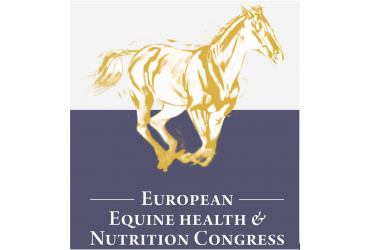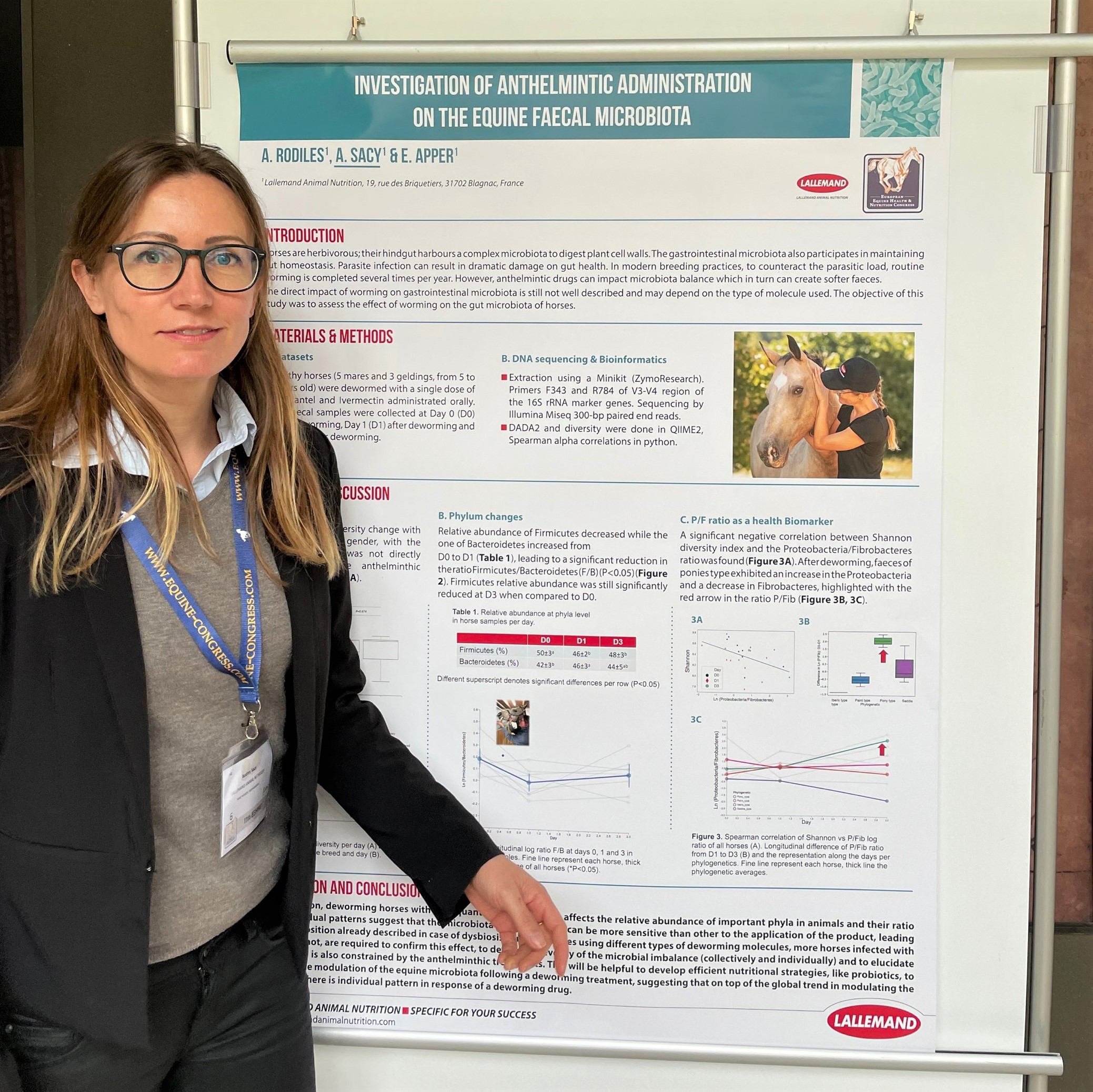News | Reading Time 3 minutes
Take a deep dive into the equine gut microbiome at the 11th European Equine Health & Nutrition Congress

We took take part in the 11th European Equine Health & Nutrition Congress held at Ghent University March 23-25, 2023, as a gold sponsor and scientific contributor.1 A study into the horse microbiota will be presented for the first time, which will show how the administration of anthelmintic drugs affect the equine gut microbiota. In this context, the development of nutritional strategies using pre- or probiotics to help preserve the equine gut microbiota may be even more beneficial than previously thought.
Investigation of anthelmintic administration on the equine fecal microbiota
The Lallemand R&D team is committed to advancing microbiota research in all animal species, and the team’s latest research focuses on equine microbiota. The study to be presented at the congress, performed by the Lallemand Centers of Excellence, investigated the consequences of widely used deworming treatments (such as praziquantel and ivermectin) on fecal microbiota in eight healthy horses.
Fresh fecal samples were collected and DNA extractions were performed to analyze the microbiota alpha and beta diversity and the relative abundance of different microbial species before and after the deworming treatment.

Audrey Sacy, a member of the Lallemand Animal Nutrition R&D team, presenting the study, explained: “Globally, relative abundance of Firmicutes decreased while the one of Bacteroidetes increased. The Proteobacteria/Fibrobacteres ratio was also affected for some horses after the anthelminthic treatment. It appears that, a similar ratio evolution has been described in case of dysbiosis. We can say that, although biological meaning remains unclear, deworming horses with praziquantel and ivermectin affects the relative abundance of important phyla in the animals’ gut. Looking at individual data also suggests the microbiota of some horses could be more sensitive than others to the application of the product.”
She concluded: “In addition to adequate deworming protocols and housing management, development of efficient nutritional strategies, like probiotics, to prevent the modulation of the equine microbiota could be a way to balance the deworming effect on horse microbiota.”
Lallemand Animal Nutrition offers selected natural solutions for leisure and performance horses to help preserve their delicate digestive function and balance gut performance even during challenges experienced during modern equine housing, competition and training.
For more information on Lallemand range for equine nutrition, visit: https://lallemandanimalnutrition.com/en/europe/our-products/species/equine/
Published Mar 23, 2023 | Updated Feb 21, 2024